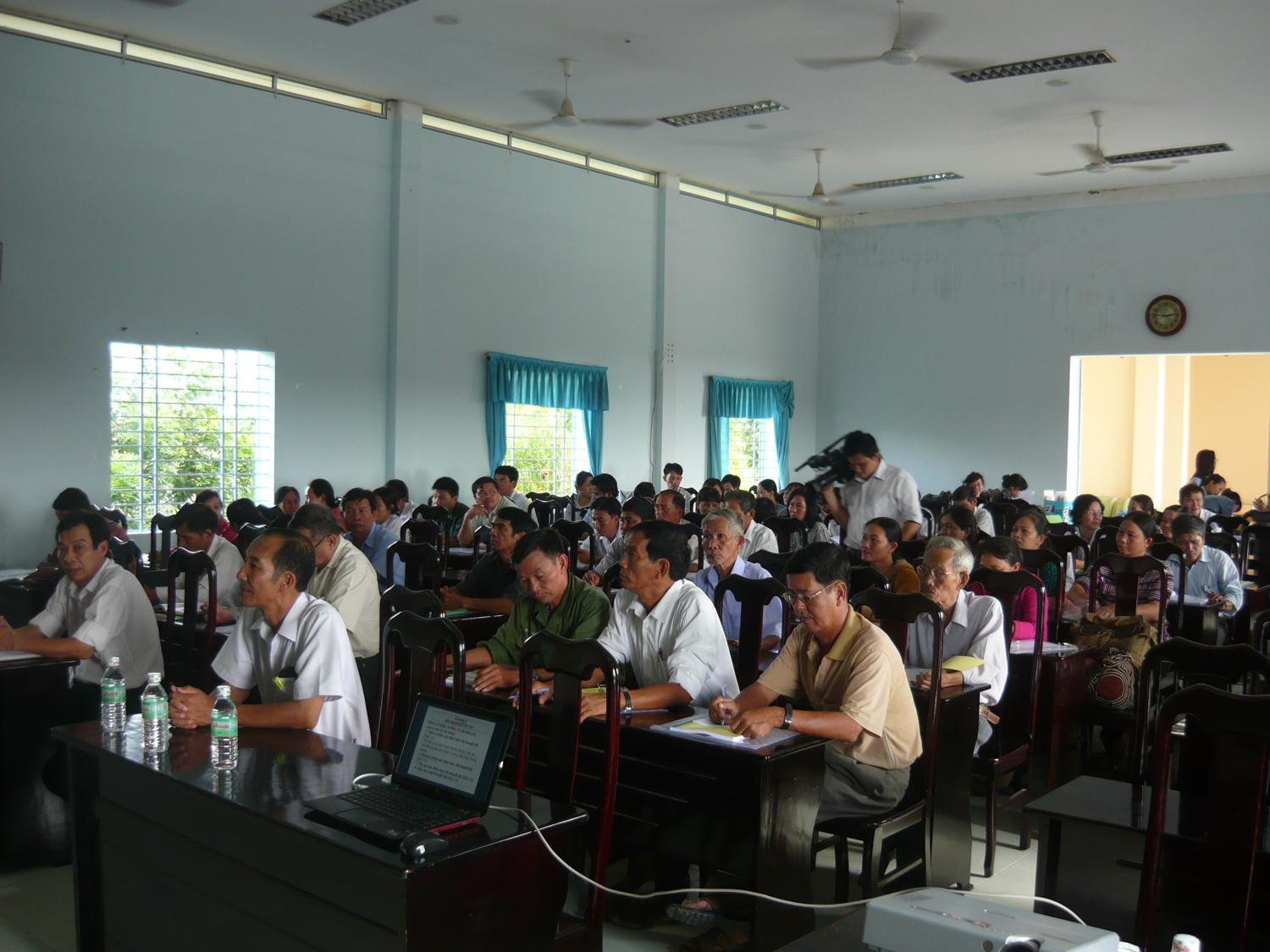
Khanh Hoa Legal Support Center held a legal support conference for nearly 100 collaborators and representatives from legal support clubs...
Khanh Hoa Legal Support Center held a legal support conference for nearly 100 collaborators and representatives from legal support clubs in Ninh Hoa Town and Van Ninh District on October 23. The event was designed to promote legal support for the disabled in communities.
 |
| Legal support conference. |
According to disability surveys regularly conducted in Khanh Hoa Province, there are 36,000 reported with impairment, including 4,003 with especially severe disability and 14,814 with severe disability.
The conference provided basic content related to policies for people with impairment; legal support schemes; specifically, focusing on defining responsibility for verifying disability levels, procedures for disability certification, welfare benefit, allowance, etc for the aid beneficiaries.
In addition, the participants were also provided guidance on operation of legal support clubs; funding for legal support; regulations on gender equality, anti-domestic violence, child care and education.
Le Huynh, a member of Van Phu Commune Legal Support Club, says, “This is the first time I have attended such conference. The event is really helpful for our club.”
More community legal education is required though various activities and channels, including legal support clubs, to raise legal awareness of local residents, especially those with disabilities, suggests Tran Thi Diep, Head of Ninh Tho Commune Legal Support Club.
According to Huynh Duy Thuong, Director of Khanh Hoa Legal Support Center, there are 57 legal support clubs operating in Khanh Hoa Province, helping to provide counsel and brief service for eligible clients.
Legal support clubs have also engaged in public policy advocacy to protect and expand the rights of legal aid beneficiaries in an effort to promote equality, dignity and self-determination of people with disabilities, opening more opportunities for them to integrate into the community.
N.T








